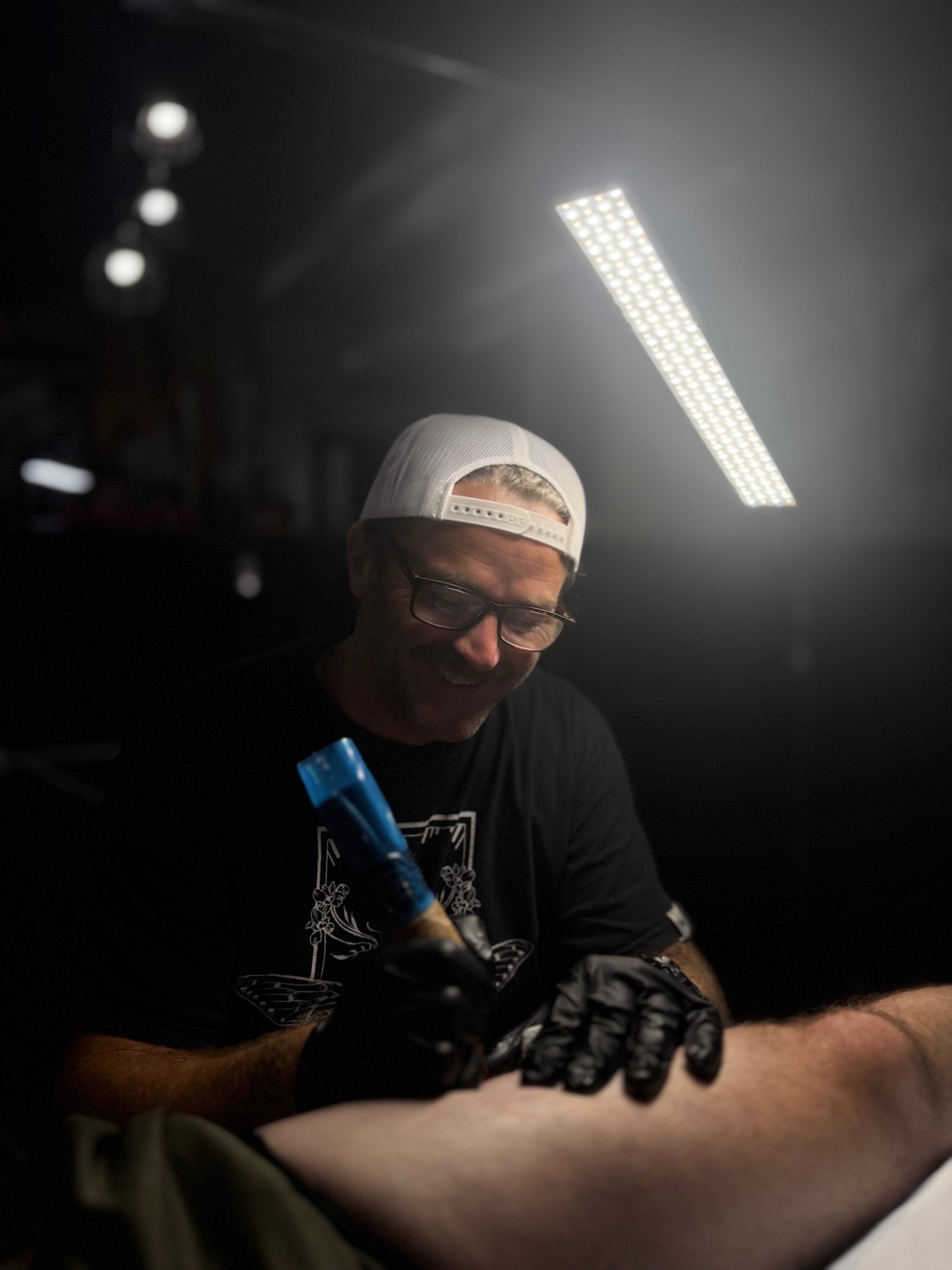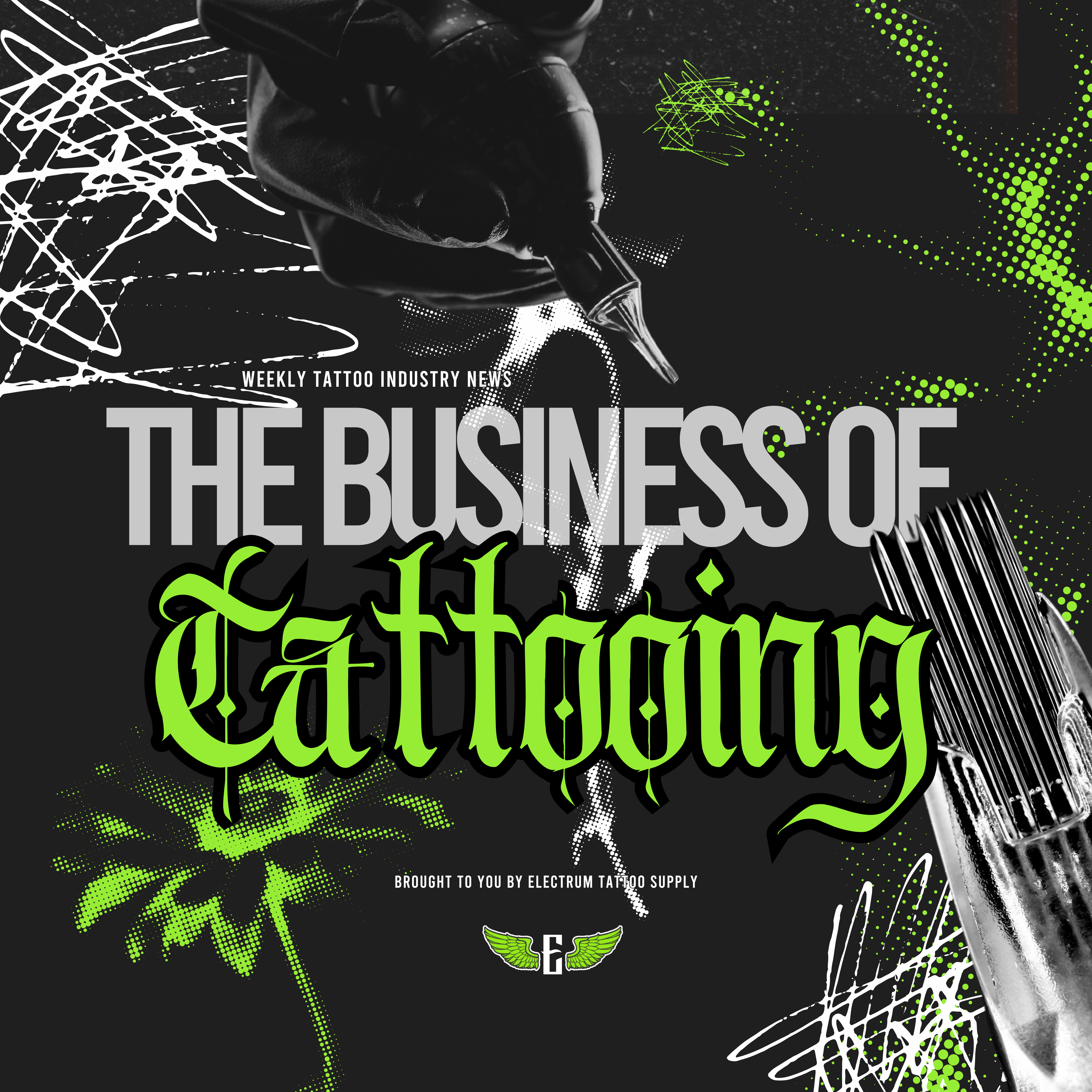Electrum's tattoo culture blog
Electrum's Tattoo Culture Blog
Why the Best Tattoo Artists I Know All Use the Same Needles
Ask around. The artists with the cleanest linework, softest blends, and most consistent healed pieces? They're usually riding or dying for one specific brand of cartridge—not because they’re loyal, but because it makes their job easier. This isn’t about trends or influencer codes. It’s about what actually works under pressure, in skin, and on healed photos six months later.
Read moreHow to Get a Tattoo Apprenticeship in 2025 (Without Selling Your Soul or Getting Scammed)
So you want to be a tattoo artist in 2025? That’s amazing.But let’s get one thing straight from the start: There is no official “Apply Here” button.Tattoo apprenticeships aren’t handed out like college acceptances. You can’t just DM your favorite artist and expect to be welcomed with open arms. You have to earn it.With your art. Your attitude. And your ability to show up and shut up (with respect). Here’s exactly how to do it.
Tattoo laws aren’t made by tattooers — but they should be understood by them.
Tattoo laws are tightening and evolving around the world. Governments are starting to treat tattooing like a regulated cosmetic or medical industry rather than a purely artistic one. Why now: Ink chemistry and pigment safety are under scrutiny. Rising global tattoo popularity = more visibility = more regulation. International ink shipping and cross-border tattooing (guest spots, conventions) have outpaced current laws. Artists are now caught between outdated local licensing rules and new international health standards - and nobody’s giving clear answers. Global Developments EU & UK: The EU’s REACH regulations now restrict hundreds of pigments and preservatives, forcing reformulation or bans. Expect ongoing ingredient restrictions, new labeling standards, and required safety testing. UK post-Brexit is developing its own list - slightly looser, but still moving toward stricter oversight. If you import or use EU-compliant inks, make sure you know whether your bottles meet the latest formula version. South Korea: As of late 2025, South Korea officially legalized tattooing for non-medical professionals - after decades of gray-area operation. This will likely set off a wave of legalization and licensing updates across Asia (Japan, Thailand, Philippines). Expect increased tattoo tourism in Seoul and a rise in licensed training programs. Australia: Australia’s states are re-evaluating licensing laws to include infection-control certification and ingredient transparency. New studies have prompted the government to investigate pigment imports after revealing aluminum, copper, and unlisted chemicals in popular inks. Canada : Health Canada is quietly monitoring the EU REACH changes and could follow suit with mandatory pigment registration or reporting. Most tattoo safety standards are still provincial, not federal - so Ontario and Quebec may act first. United States Developments Right now, there’s no federal regulation of tattoo inks by the FDA - but that’s about to change. Here’s what’s happening: The Modernization of Cosmetics Regulation Act (MoCRA) now includes “body art pigments” under FDA authority. Expect ink manufacturers to soon be required to register formulas and facilities. The FDA and CDC are conducting more safety testing on pigments, preservatives, and carrier fluids (like glycerin and alcohol). Pigment bans or recalls are possible if harmful heavy metals or allergens are confirmed. Certain states (California, New York, Florida) are already discussing stricter sanitation and ink labeling laws that could require artists to track ink lot numbers for each client. State-Level Actions: Michigan’s Numbing BanMichigan has become the first U.S. state to ban the use of all topical numbing agents during tattoo procedures, effective 2025.This includes both over-the-counter and compounded lidocaine creams when applied by artists. Only medical professionals may now legally apply numbing agents in Michigan studios. What to worry about (and prepare for): Keep all ink lot numbers and MSDS/SDS sheets recorded for each client session. Avoid unlabelled, off-brand, or non-compliant pigments - those may become illegal to use or sell. Stay aware of new cross-state certification reciprocity (coming soon to help artists travel more easily between states). Watch for updates on tattoo licensing boards expanding to include ongoing health and safety training. What Should YOU Do Now Audit your ink shelf:Check labels, batch numbers, and expiration dates. Make sure every bottle you’re using has a listed manufacturer and full ingredient transparency. Download your SDS sheets:Keep digital and printed copies for all inks and chemicals. These may become legally required during inspections or travel. Register for updates:Follow FDA Tattoo Ink Regulation Page, EU REACH updates, and your state or provincial health department newsletters. Educate your clients:Turn regulation into reassurance — tell clients you use only fully documented, transparent, high-quality inks. Be convention-smart:If you travel internationally, know import restrictions on inks and single-use items. (Many artists have had gear confiscated at customs in Europe post-REACH.)
The 7-Step Sanitary Station Setup (So You Don’t Get Roasted on TikTok)
For new tattoo artists who want to work clean, stay legal, and keep clients safe. Your station is the foundation of your practice—not just how it looks, but how it protects. Whether you're setting up at a street shop, a private studio, or your first apprenticeship, these 7 steps will help you meet (or beat) health board standards and avoid the kind of viral videos no one wants.
What Tattoo Suppies to Upgrade First When You Can’t Afford to Upgrade Everything
Every artist hits that point: your setup works… but barely. Your back hurts, your stencils slide off, your ink looks like it came from a gas station. You want to level up—but your bank account said, “be serious.” Here’s the realistic, not-sponsored, artist-approved guide to what you should actually upgrade first when money’s tight.Prioritized by: Client safety → Tattoo quality → Artist health.
The Difference Between Cleaning, Sanitizing, Disinfecting, and Sterilizing (And Why It Matters)
In tattooing, using the wrong product (or using the right one the wrong way) isn’t just bad practice—it can literally put your clients at risk. Understanding the difference between cleaning, sanitizing, disinfecting and sanitizing is foundational for keeping your setup safe, professional, and compliant.
Tattoo Shop Etiquette: What Every Apprentice Should Know (But Is Too Scared to Ask)
Because “just clean stuff” isn’t exactly a job description. Getting into a tattoo shop as an apprentice is exciting—and terrifying. You’re surrounded by experienced artists, intimidating tools, and a million unwritten rules no one explained. If you’re constantly wondering “Am I doing this right?” or “Are they mad at me?”, you’re not alone. So here it is: the etiquette guide you wish someone handed you on day one. Straightforward, respectful, and based on real shop experience—not TikTok myths. 1. Don’t Wait to Be Told to Clean—Just Clean If there’s dust on a baseboard, wipe it. If the garbage is 60% full, take it out. Tattoo shops need to be sterile, and nobody wants to ask you to do what’s obviously gross. Pro Tip: Re-cleaning something that already looks clean is part of the job. Get used to it. 2. Learn Everyone’s Routine Without Asking Watch how the artists set up their stations. See what grip tape they use. How many rinse cups they pour. When they like their coffee. Learn to anticipate. Don’t ask “Need help?”—just quietly do what you know they need. 3. Say “Good Morning” and “Good Night” It’s basic, but you'd be shocked how many apprentices treat the shop like a side quest. Greet everyone when you arrive. Say goodbye when you leave. You’re part of the team now. 4. Stay Off Your Phone (Unless You’re Filming Content They Asked For) Scrolling Instagram while your mentor is scrubbing tubes? Bad look. If you're not actively working or learning, ask what you should be doing. Use your downtime to restock gloves, refill paper towel, clean flash frames—anything. If you’re filming content for the shop, great! But ask before posting. 5. Don’t Touch Someone’s Station Without Permission Even if you think it’s just a towel. Even if it looks abandoned. Tattoo stations are treated like sterile zones. If you touch something while it’s being set up, you might’ve just cost that artist 20 minutes of rewrapping and re-cleaning. 6. Your Job Is to Learn—but Also to Watch, Listen, and Shut Up Sometimes You’ll have questions. That’s good. But there’s a time and place. Don’t interrupt a stencil application to ask what kind of liner someone’s using. Take notes and ask when there’s a break. ✍️ Keep a notebook. Write things down. Refer to it before asking the same question twice. 7. Know That Every Artist Teaches Differently Some mentors will micromanage you. Others will throw you into the deep end. Neither is wrong. Your job is to adapt, stay respectful, and show up with a good attitude—even if you’re washing tubes for the fifth time today. 8. If You Don’t Know—Ask. If You Mess Up—Own It. Mistakes happen. What matters is how you respond. Don’t lie. Don’t hide it. Be honest, fix what you can, and show that you’re paying attention. That builds trust faster than trying to act perfect. 9. Be Useful—Even If No One’s Watching Clean the bathroom. Mop behind the door. Restock the stencil paper before it runs out. When your mentor sees that you’re thinking ahead, that’s when real responsibility follows. 10. Don’t Tattoo at Home. Don’t Tattoo Without Permission. Period. This one is sacred. No kitchen tattoos. No scratching on friends. No “just practicing” on yourself. Your mentor is investing in your growth. Respect that. 🔥 Tattooing before you’re ready is not only dangerous—it’s a fast way to lose your apprenticeship. 🙏 TL;DR: Tattoo shop etiquette isn’t just about being polite. It’s about being aware, proactive, and humble. The best apprentices become the best artists—not because they knew everything, but because they knew how to listen, show up, and earn trust. Looking for supplies that won’t embarrass you in front of your mentor?👉 Check out Electrum's beginner gear picks here
Beginner Tattoo Gear Picks: What You Actually Need to Start Tattooing
A no-BS guide to getting your station together—without wasting money or pissing off your mentor. If you’re just starting out as a tattoo apprentice (or prepping to go pro), the internet will try to convince you that you need a $2,000 machine, 48 ink bottles, and a ring light the size of the moon. But real ones know: the best artists start with clean fundamentals, not flashy extras.
10 Things Every Tattoo Artist NEEDS in Their Station (That Aren’t a Machine)
So you’ve got your dream machine. Congrats, hotshot. But your setup doesn’t stop there—and your clients (and their immune systems) are counting on you. A good tattoo station isn’t just about what puts ink in skin. It’s about what keeps your process clean, professional, and stress-free from start to finish. Here are 10 essentials every tattoo artist should have in their station—none of which plug in.
About the Electrum Blog:
From tattooing's past to the future, the team of artists and shop owners at Electrum share their perspectives and knowledge on everything tattoo industry.
A few of the things you'll find in our blog posts:
- Business and Industry Insights: advice and ideas for tattoo business growth, current industry trends and strategies for attracting clients, whilst managing a full schedule.
- Compliance and Safety: Information regarding regulatory compliance and our mission to produce safe, compliant inks.
- Product Information: Details about our specific products.
- Interviews and Events: Discussions and recaps from industry events.











